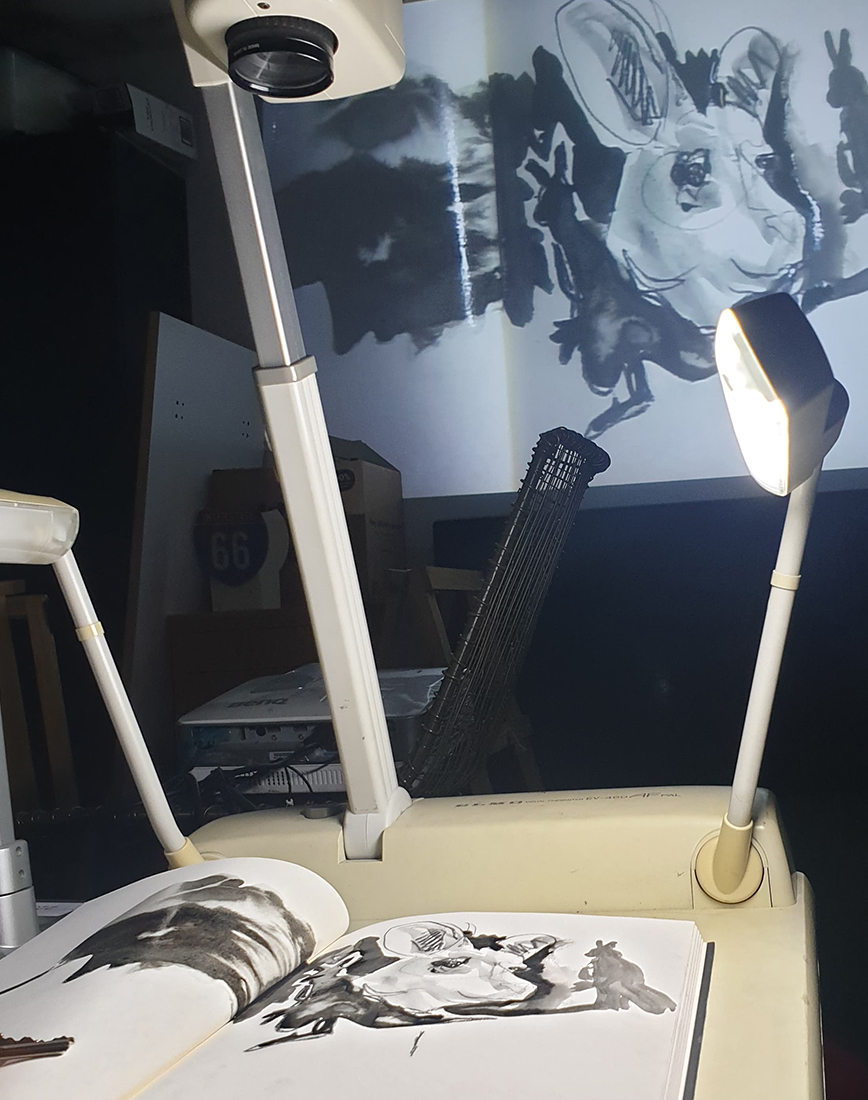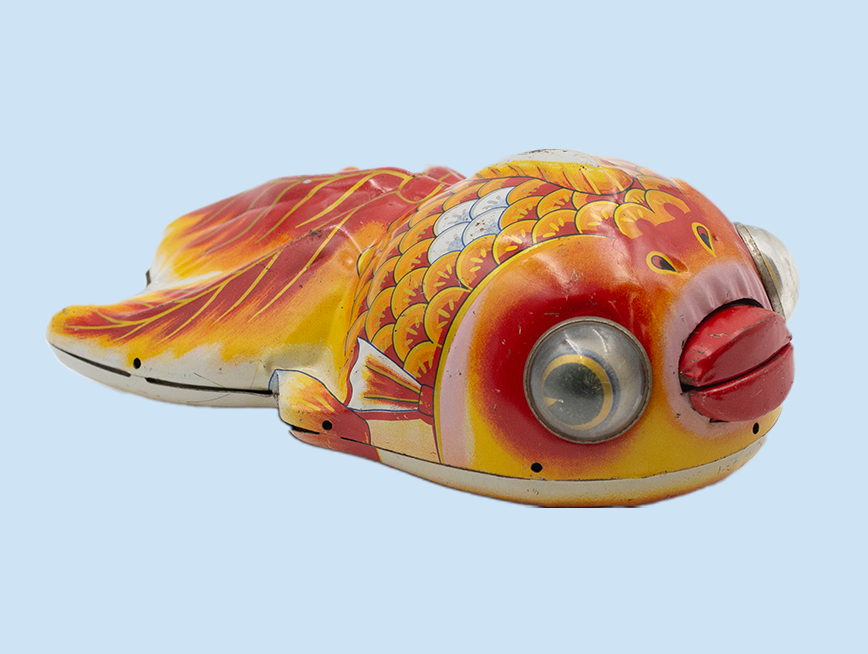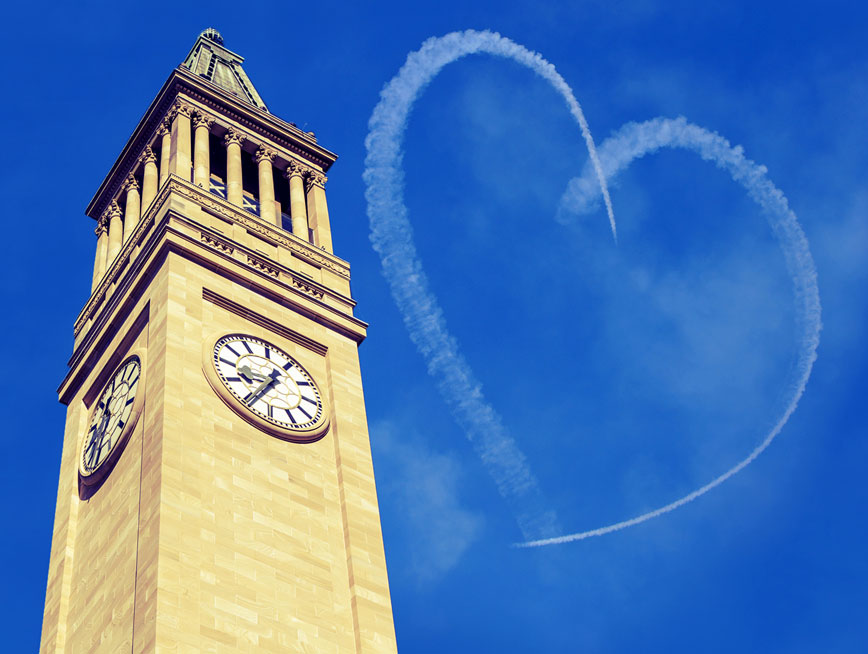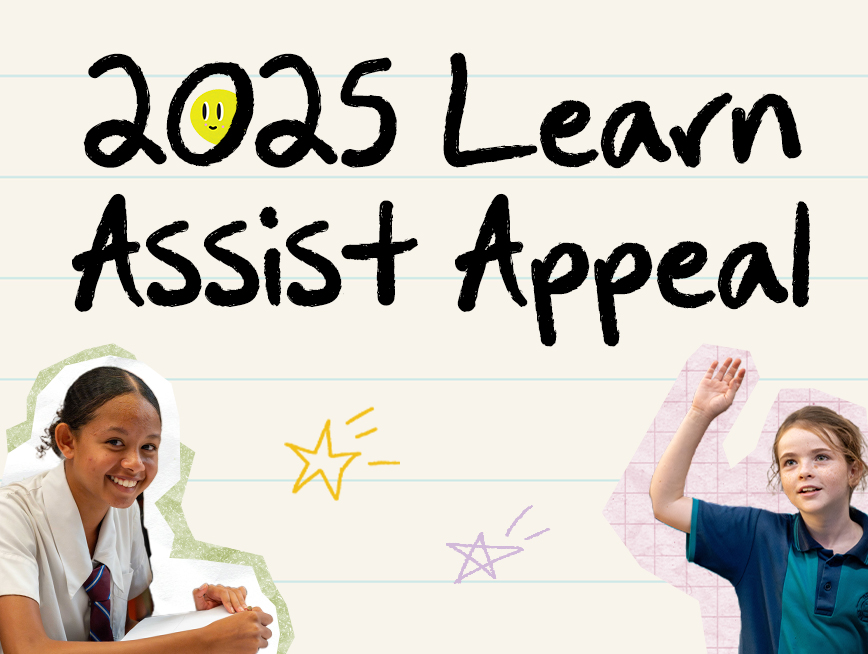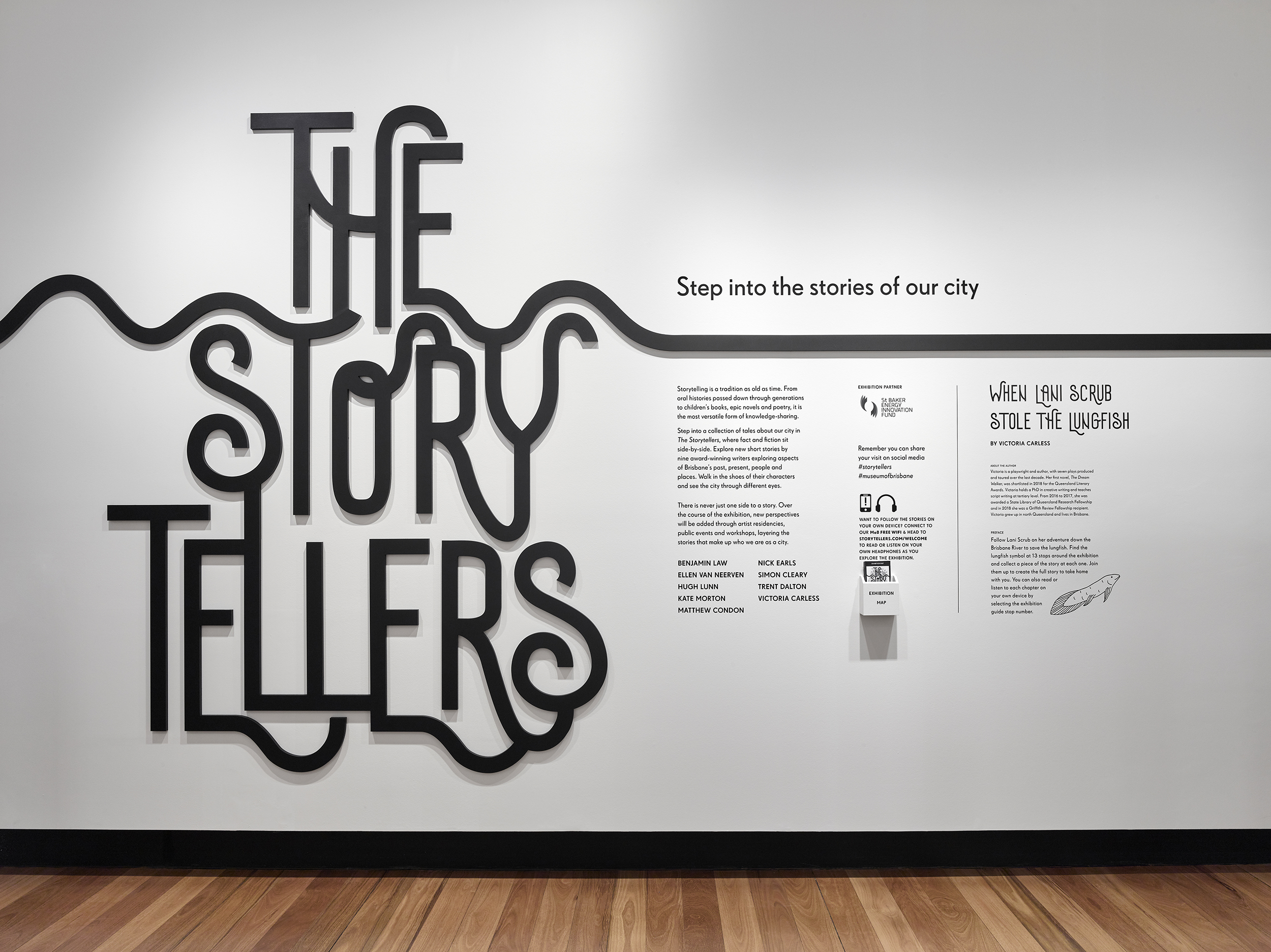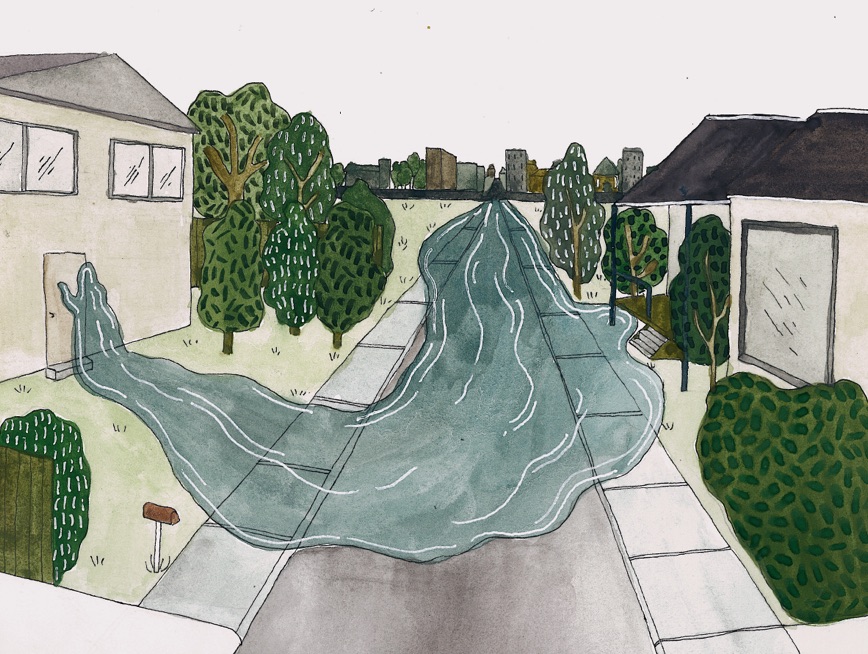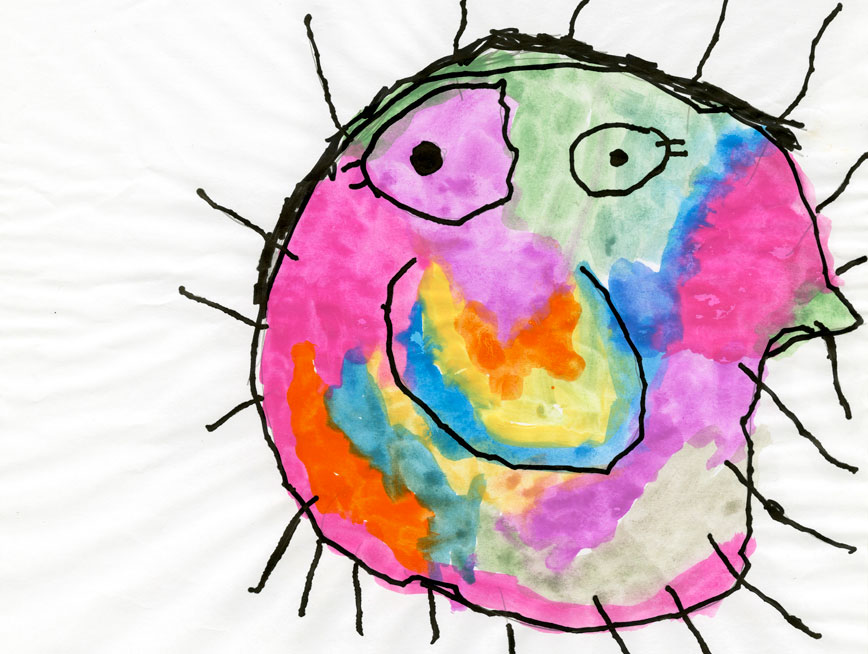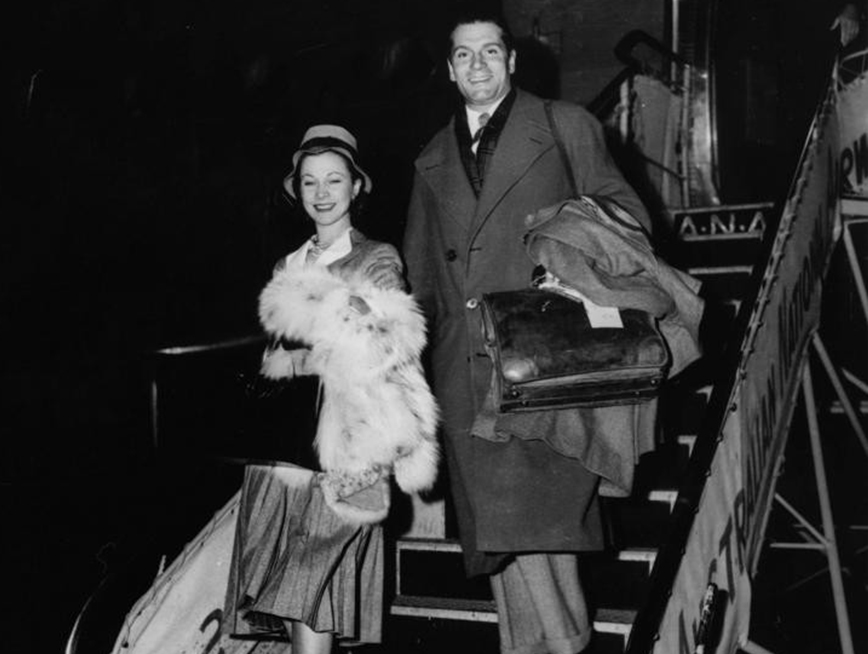With a practice that integrates sculpture, moving image, performance and painting, Sydney based artist Todd Fuller is, at his core, a draughtsman. Underpinning all aspects of his practice is a love of drawing and a belief in its power as a democratic medium to connect, engage and delight audiences. During 2020 Todd was invited to respond to Simon Cleary’s short story for The Storytellers, All Around Us Creatures Graze. While the artist and author never met in person, they’re collaboration resulted in a uniquely symbiotic marriage of words and art. Ahead of their In Conversation on 4 June 2021, we took some time out to talk to Todd about his practice.
Your drawing practice is really interesting, could you tell us how you combine your approach to drawing and animation?
My animations are a sketchbook brought to life. By drawing, documenting, erasing and re-drawing repeatedly I am able to thread together hand drawn stills to simulate movement. In doing so I gift motion to the motionless. It is an analogue process, very labour intensive with the hand of the maker a central part of the product. It is a process borrowed from a range of animators including William Kentridge and Walt Disney which I have been experimenting with for just over ten years.
You produced an animation for the storytellers exhibition, please tell us about it.
I was given Simon’s piece ‘All around us creatures graze’ to articulate. It is a beautiful short story about Kangaroo Point. I don’t think Simon would mind me calling it is a speculative history piece which reimagines and weaves together various scenarios of the suburb. One of these stories is about a boy attempting to prove his manhood. There is an inate fragility in the way that I work with every moment being erased or even destroyed – the process felt very appropriate for Simon’s piece.
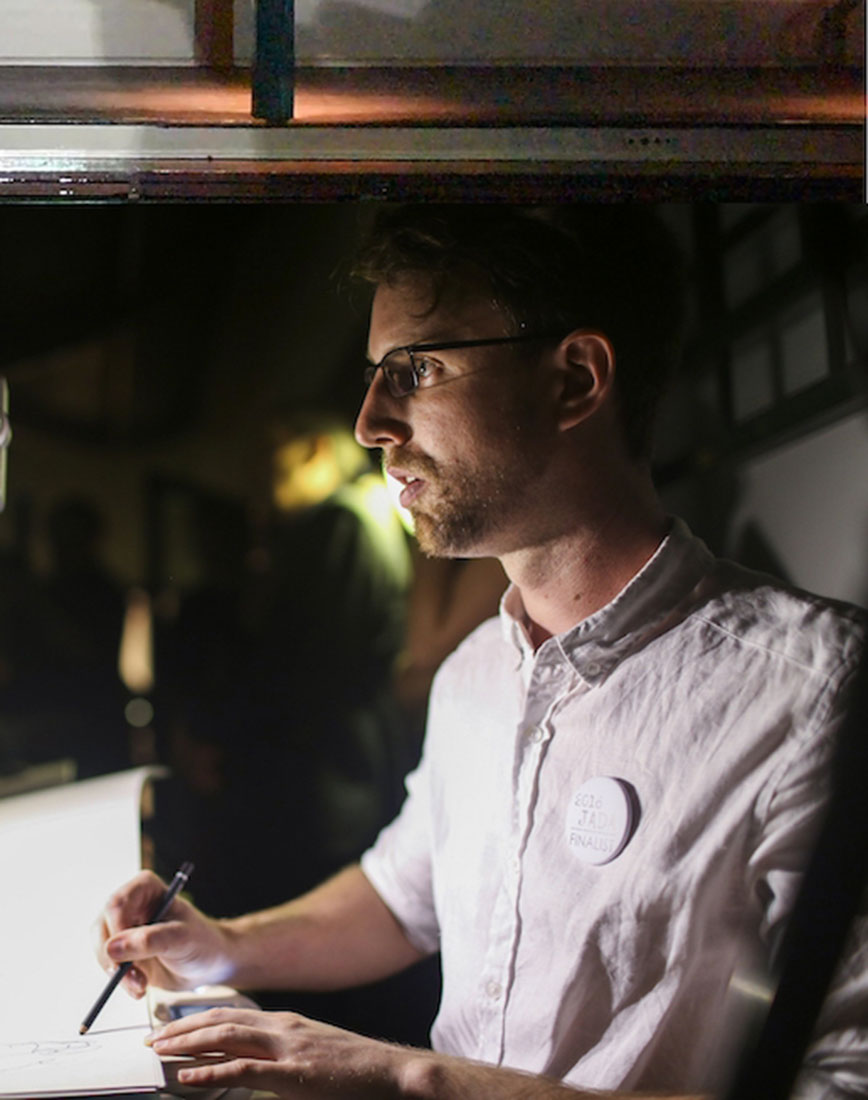
Was there anything particularly inspiring about Simon’s work that you enjoyed responding to?
The way Simon has constructed this story is like one big haze of memory. The narrative folds over itself, the point of view shifts while the period in time oscilates backwards and forwards. It catches you off guard and quickly pivots. It is a piece which captures the poetry of the human understanding of time. This speaks perfectly to the animated medium which is a medium where you essentially work with time as a tool. In the same way that his story folds over itself, eroding and assembling, this animation is a series of moments built over one another. I wanted the imagery to collage and corrode with the same quality as Simon’s text. It was liberating to work in such an intentionally non-linear fashion.
You’ve collaborated with several multidisciplinary artists in live drawing events, what attracts you to working this way?
My first collaborator for live drawing was dancer/choreographer Carl Scibberas, working together allowed us to address the deficits of our respective practices. He was able to breathe motion into my motionless drawings, and I was able to make permanent his ephemeral act of dance. Since then I have gone on to work with choirs, symphonies, writers, musicians and various other artists. In each partnership there is an exchange in which the drawing medium gains something new but also articulates an element of the other artform beyond its own parameters.
The thing I like the most is that these collaborations allow me showcase drawing as being so much more than a piece of paper. Drawing, and in particularly a sketchbook practice, is a solitary and private activity. It is a series of moments, mistakes, corrections and nuances…dare I say it is a journey. But traditionally, that journey it is not public. Live drawing, or drawing as performance changes this. The game of creation is laid bare, the process shifts from private to public and I get to share the magic which is drawing.
